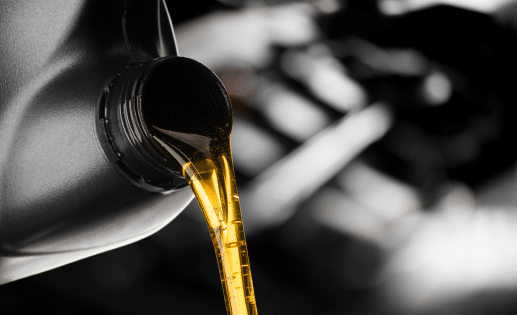Schedule Your Appointment Today!
Oil Change & Lube Services
Shuttle Service
Loaner Vehicles
Digital Vehicle Inspections
After-hours Drop-off & Pick up
12 Month Warranty / 12,000 Mile
Since your vehicle’s engine oil is the lifeblood of the engine, oil changes are excessively important. The oil must be clean enough to lubricate the engine, which has very tight tolerances between parts that move at thousands of revolutions per minute. Sometimes, the clearance between two speeding metal parts is as little as .0022 inches. Any grit in the oil can erode that narrow gap, much like sandpaper.
Yocum Automotive in Republic, MO provides oil change & lube services in addition to other maintenance and repairs for your vehicle.

Changing your vehicle’s oil and filter, as recommended by the manufacturer, has many benefits, including:
As the oil becomes dirtier and loses lubrication, the engine works harder. When the engine has to work harder, it decreases horsepower and fuel economy.

Lube services ensure the rest of the vehicle receives the lubrication it requires to operate properly. Various parts of the chassis, such as tie rod ends, ball joints and the steering linkage, need to be kept lubricated.
The differential also needs regular lubrication. Not lubricating the differential gears causes them to wear out quickly. Finally, suspension bushings and control arms require lubrication to keep them moving smoothly.
Lubing your vehicle significantly reduces wear and tear on the chassis and suspension. It also makes your vehicle safer to drive as properly lubed parts allow for better handling and control of the vehicle. Finally, well-lubed steering and suspension means a smoother, more comfortable ride.
Every owner’s manual should have two oil change schedules for your make and model vehicle. The standard schedule, which most people follow, and a “severe use” schedule. If you don’t drive under severe conditions, most vehicle manufacturers recommend changing the oil every 5,000 to 7,500 miles as long as you’re using synthetic oil. If you use a synthetic blend, the oil change interval is most likely 5,000 miles.
If you use conventional oil, you still have to change the oil every three months or 3,000 miles, whichever comes first.

Some people drive more than others, drive through more mountains, never take trips over 10 miles, and have other driving habits that constitute severe use. Severe use oil change intervals are often 2,500 to 3,500 miles sooner than regular oil change intervals.
Autocare.org recommends changing the oil every 3,000 miles if your driving falls under the severe use category. Always check your owner’s manual, and if it doesn’t have a severe use schedule, change the oil every 3,000 miles or three months, whichever comes first.
The additional strain on the engine decreases the oil’s lubricating properties and increases foreign substances in the oil faster.
So, what is severe use, and why do you need to change the oil more often?

We are an AutoTechIQ Certified business.
After Hours
Drop-OFF
After Hours
Drop-OFF

Contact Info
Opening Hours